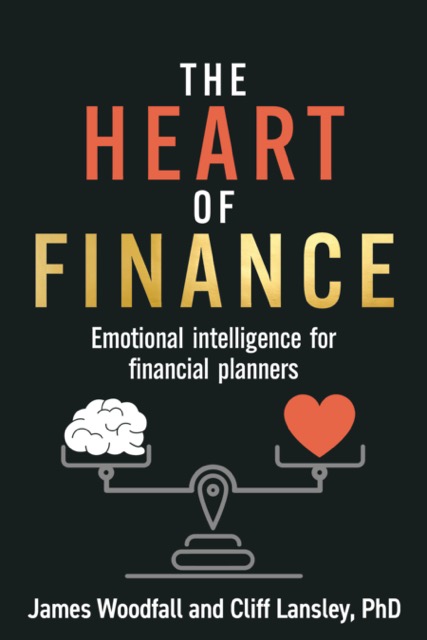Former Financial Planner turned author and consultant James Woodfall explains how emotional intelligence works and how Financial Planners can utilise the benefits of EI to understand their clients better.
There is no doubt that connecting with clients on a deeper level can improve the delivery of sound advice and build enduring, trust-based relationships.
Emotional intelligence (EI) is pivotal in achieving this connection. It offers Financial Planners insights into their clients' emotional states and helps them adapt their communication strategies according to the context.
The Importance of Emotional Intelligence
At its core, EI involves recognising and responding to emotions, both our own and those of others. For Financial Planners, this means learning to identify subtle signs of emotion in clients, whether they are expressed verbally or through non-verbal behaviours.
With training, Financial Planners can become experts at detecting changes linked to emotions in facial expressions, body language, tone of voice, or even psycho-physiological cues like fidgeting or changes in breathing.
Although fleeting, these signals are critical because emotions significantly influence clients' receptiveness to advice and decision-making. For example, a client receiving unexpected or complex financial information might display momentary hesitation, a tense posture, or a change in tone. Such responses indicate that the client may be experiencing an emotional response to the information presented.
Recognising Emotional Responses
Emotions typically last only seconds, but their effects can linger during a longer-lasting refractory period, where clients' thinking may be temporarily biased. During this time, their ability to process information rationally may be impaired, making it crucial for Financial Planners to recognise and respond appropriately.
Planners can adjust their approach by observing and understanding these emotional cues. For instance, acknowledging a client's discomfort with empathy builds trust, and everything Financial Planners do for their clients is downstream of trust. Timing is equally essential; delivering key messages when clients are emotionally ready can ensure that advice is better understood and appreciated.
Managing Difficult Conversations
In the day-to-day practice of Financial Planning, challenging conversations are inevitable. Clients often face emotionally-charged decisions, such as planning for retirement, dealing with financial setbacks, or navigating markets. Financial Planners act as emotional circuit breakers during such moments, helping clients manage their emotions to avoid rash or costly decisions.
A key element of this role is empathy. Understanding clients’ feelings, such as anxiety about market volatility or fear of outliving their savings, demonstrates active listening and a genuine attempt to grasp the client’s perspective. By tailoring communication to address clients' emotional states, planners can guide them through complex decisions by providing the right message at the right time.

New book on EI from James Woodfall and Cliff Lansley
The Role of EI in Building Relationships
Effective use of EI in Financial Planning is about building trust and deepening relationships. Behaviour analysis techniques and a strong foundation in EI enable planners to adapt their communication styles to fit each client’s needs. This adaptability enhances understanding and establishes influence, positioning the planner as a trusted adviser who prioritises the client’s well-being.
Mastering EI is essential in a profession that demands technical expertise and human connection. EI can be trained and enhanced, leading to performance improvements such as increased client retention, referrals, and new business.
James Woodfall is an experienced former Financial Planner who now advises financial services firms on how they can use emotional intelligence to improve individual and company performance. While studying for his Masters, he researched the relationship between emotional intelligence and job performance in Financial Planners. Together with Cliff Lansley, a forensic emotional intelligence expert and a director of the Emotional Intelligence Academy, they are the co-authors of recently launched book The Heart of Finance, a practical toolkit enabling finance professionals to develop the Emotional Intelligence needed to build effective and profitable client relationships.

